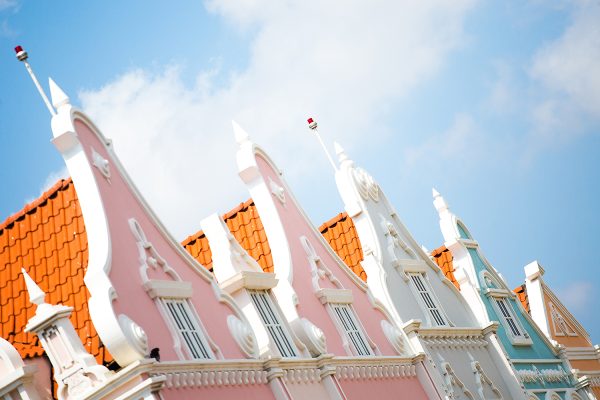
The government of the Aruba, a Dutch island in the Caribbean, has presented a five-point plan to restructure its tourism-dependent economy, which has been decimated by COVID-19.
Meanwhile on neighboring Curaçao, pro-independence parties are boycotting the inauguration of a pro-government lawmaker, bringing politics on the island to a standstill.
The two islands, and Sint Maarten, are autonomous countries within the Kingdom of the Netherlands and have yet to approve Dutch terms for financial support to cope with the effects of coronavirus.
Standstill on Curaçao
Prime Minister Eugene Rhuggenaath’s majority in the 21-seat legislature of Curaçao was reduced to one last month, when his liberal party’s William Millerson died.
Rennox Calmes, who led a one-man pro-government party, left the ruling coalition this month.
The opposition parties, now five — the largest two of which want independence from the Netherlands — are boycotting the swearing-in of Millerson’s successor, demanding snap elections.
The stunt has no legal standing, but it is denying the ruling parties a quorum, meaning no laws can be passed, including to deal with the economic and health crisis.
The Dutch-language Antilliaans Dagblad laments that the same politicians who demand conditions-free “solidarity” from the European Netherlands are unable to muster such solidarity among themselves.
Governor Lucille George-Wout, who nominally represents the Dutch king on the island, has warned she will invoke emergency powers to seat Millerson’s successor unless the opposition parties return to parliament.
It would be the second time in George-Wout’s tenure that she invoked emergency powers, both times due to the machinations of Gerrit Schotte.
Schotte
Schotte, a former prime minister, leads the largest opposition party: the separatist Movement for the Future of Curaçao (MFK).
He lost power in 2012 and was convicted of bribery, money laundering and forgery of documents four years later, barring him from public office.
Schotte nevertheless continues to lead his party behind the scenes and MFK returned to power in 2016. A coalition with the social democratic Partido MAN, which now supports Rhuggenaath, collapsed barely two months later.
When governments in the Netherlands fall, it usually triggers early elections. Schotte tried to prevent that, knowing he would lose, and made a deal with other parties to keep MFK in power. The government in The Hague saw this as a power grab and gave George-Wout control over the island’s public services to make sure elections could proceed.
Dutch demands
The European Netherlands are paying for food and health-care aid to Curaçao.
The Dutch are also helping to pay for a furloughing scheme, without which unemployment could reach 60 percent.
Aruba, Curaçao and Sint Maarten have cut public-sector wages 12.5 percent. The cuts triggered riots on Curaçao, which were egged on by opposition parties.
To qualify for further support, the Dutch are demanding labor and pension reforms overseen by a panel of Dutch administrators. The island governments accept the reforms but reject the imposition of a panel that would answer to The Hague and not the local parliaments.
Aruba’s plan
While politicians on Curaçao play games, Aruba’s have put together a comprehensive plan of reforms, including:
- Making it easier to companies to hire and fire workers.
- Harmonizing employment regulations between the public and private sectors.
- Investing in education and retraining.
- Simplifying the tax code.
- Shifting to e-government to reduce bureaucracy.
Although Aruba is more business-friendly than Curaçao, and had lower unemployment before the pandemic, it can still take a long time for companies on the island to get permits. Regulatory uncertainty deters foreign investment. Credit is scarce, which discourages entrepreneurship.
The reforms the Aruban government is proposing are of the sort the Dutch have recommended for years.
They are subject to a two-week consultation period, after which they will be submitted to lawmakers for approval.
